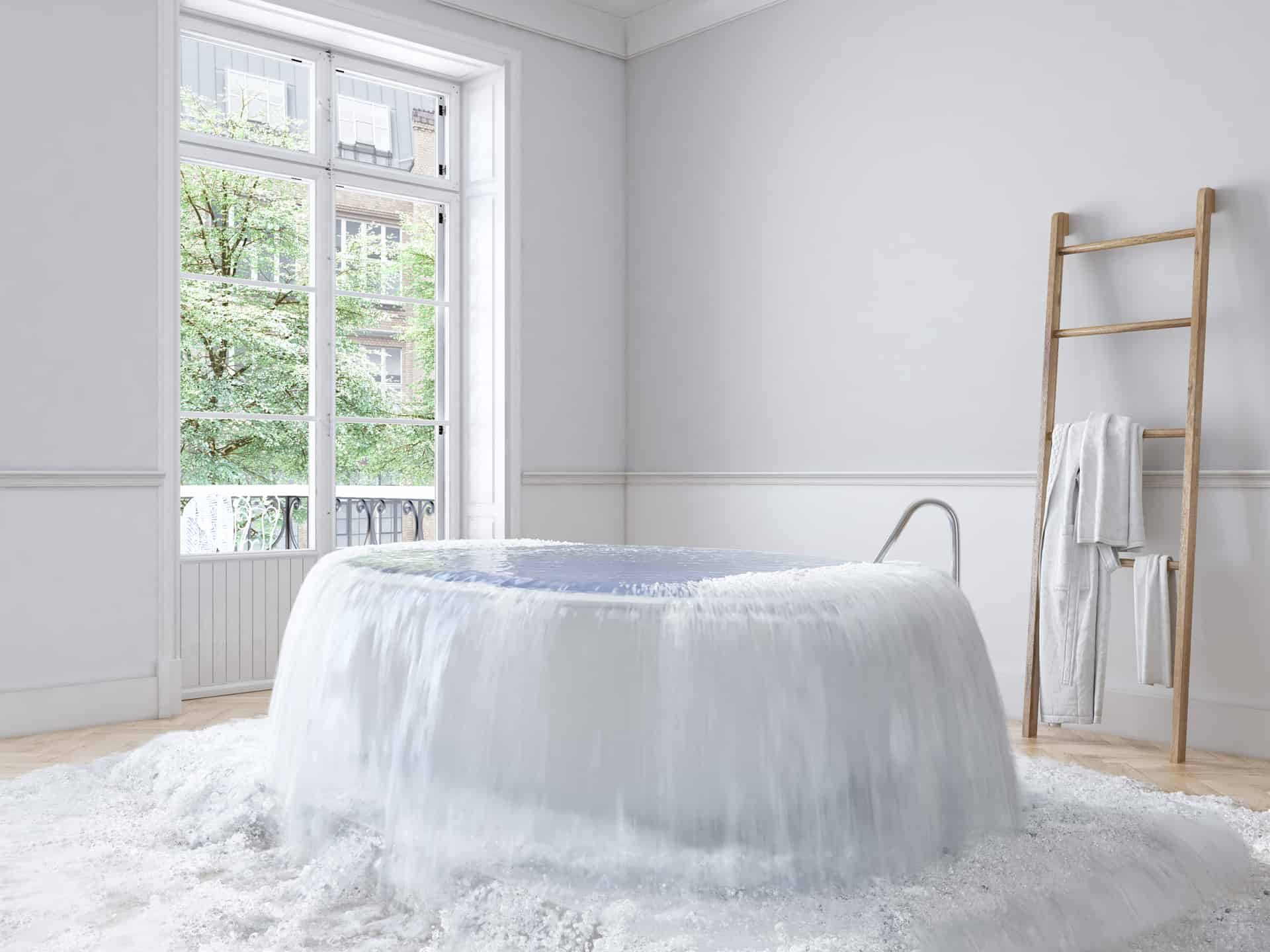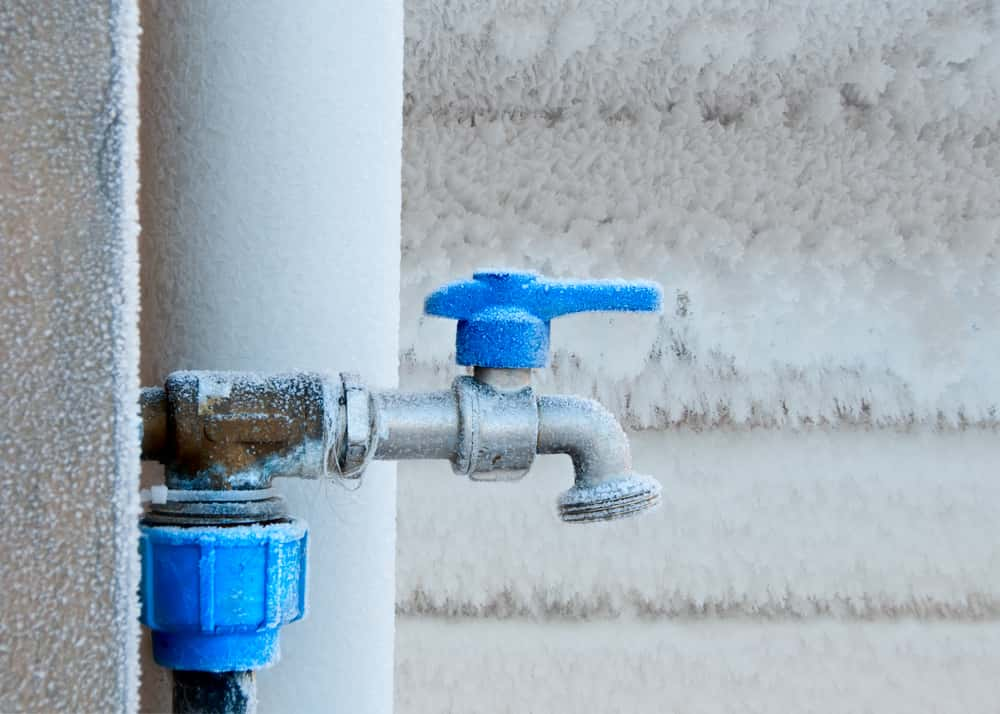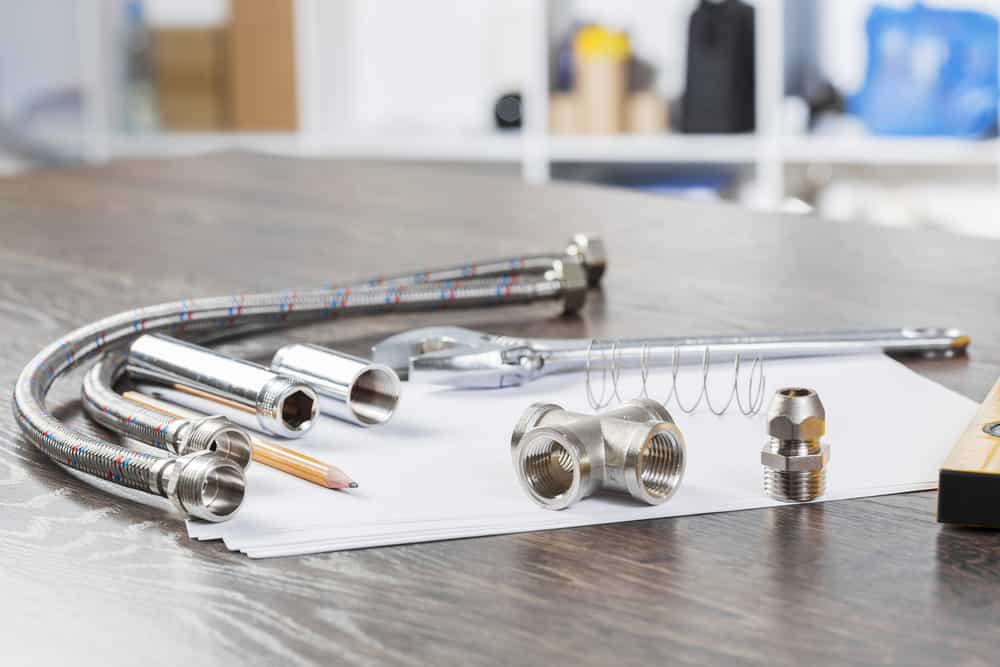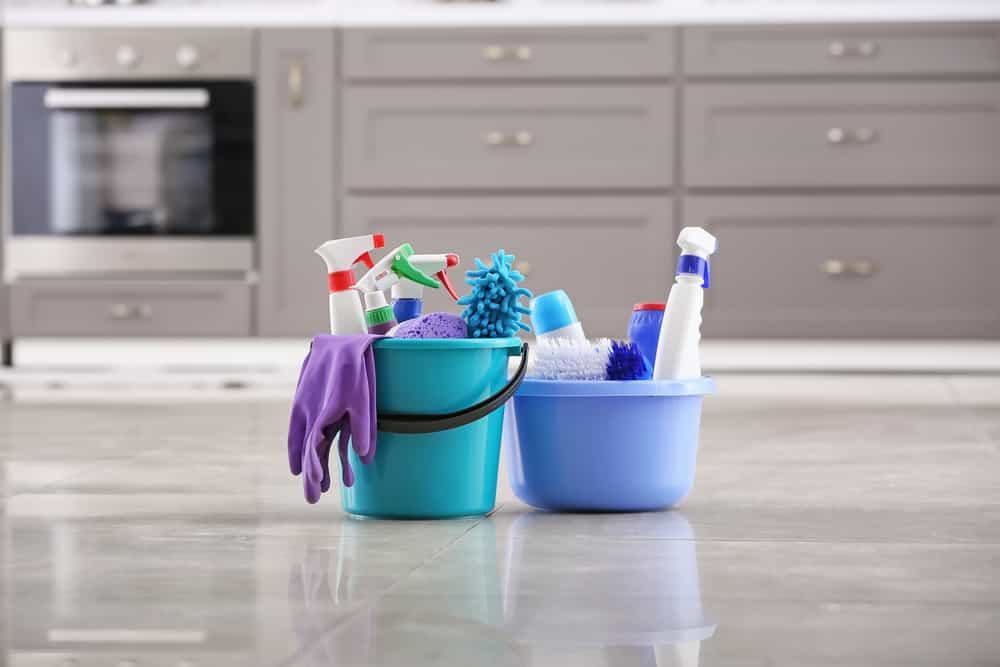Water Damage
Whether you have a flood or an unexpected leak, we fully understand the urgency of getting the water out as soon as possible. That's why we offer 24 hour emergency water damage response - because the sooner you get the water out, the less flood damage you'll likely incur. Experts say that the worst water damage occurs when water has been standing for more than 48 hours, which means timing is everything when a flood occurs.
Water Extraction
When you need emergency water extraction, you can call (859)302-2702 24 hours a day, 7 days a week to get a certified water damage technician to start the water damage extraction process right away! Our water extraction service is first rate. We only use state-of-the-art equipment and techniques to get the water out - now! Serious water damage, such as with a flood, requires serious attention to ensure that not only is all of the water extracted, but also that all of wet areas are dried completely and treated quickly to minimize lasting water damage effects. If the water extraction is not performed quickly, the water damages to your property could become very severe!
Water Damage Extraction
We understand the need to keep your water damage restoration companies cost as low as possible. Therefore we make sure the extraction of water is performed in a timely manner. This will greatly minimize your restorative costs and reduce your chances of developing a mold problem. It is imperative that furniture and carpet is treated right away to decrease the opportunity for microbial growth to occur. Personal property also has a greater chance of surviving the flood if it is attended to right away. Most importantly, however, all electrical components that may have been soaked by water MUST be attended to right away to avoid the potential for dangerous electrical short circuits.
Flood Water Extraction
Forget about the other water extraction companies; when you need flood water extraction done right and done now, there is only one number you need to call 859-302-2702.Express Damage Restoration has technicians ready to be at your door within an hour - give us a call today.
Fallen trees are very serious problems, particularly if they fall on your home or vehicle. The first thing to do after a tree falls is to assess the safety of the situation. Get out of the home until it has been evaluated for safety. Call your insurance company right away to open the claim, then call Express Damage Restoration. We are here 24/7 to take your call, and will help you protect your home and ensure the safety of your family. If you can do so safely, take pictures of the damage to help with your insurance claim while you wait for your contractor to arrive.
Water Damage Insurance Claim Tips
- July 27, 2020
- 8 min read

Water Damage Insurance Claim Tips and Process
Water damage inside the home is the most common insurance claim made on homeowner insurance policies, but many homeowners are surprised when they find that some of the cost is not covered. It is imperative that you understand water damage and how home insurance companies respond to it.
Understand the Insurance Claims Process
Every claim has unique circumstances, but the following steps will give you a good idea of what happens when filing an insurance claim.
Step 1: Contact Your Insurance Company to File a Water Damage Claim
The homeowners insurance claims process begins when you make your insurer aware of your water damage. Contact them via their, phone, or their app as soon as possible, then fill out the necessary claims forms.
Step 2: Meet with the Adjuster
The required timelines for adjusters vary by State. Most often, the claim adjuster is legally required to assess damages within a 15-day time frame of when you report them. Check with your state insurance department since each State has different laws.
Step 3: Get a Claim Verdict
After assessing the damage to your home, the claims adjuster typically has another 15 days to decide whether you have a valid water damage claim. During this waiting period of the insurance claim process, you can look for vendors to use and get estimates for the work.
Step 4: Negotiate
If you are unhappy with the verdict or feel they should have covered the cost of something they have not included in the claim, you can negotiate with your property insurance company for a larger settlement.
Step 5: Agree on Terms
If all goes well, you and your insurer should be agreeing on the terms of the settlement. Once this happens, the funds are supposed to get transferred to you within five days.
If the insurer decides not to cover water damage expenses or covered losses are not taken care of, you can file a complaint or appeal with your State's department of insurance.
Causes of Water Damage
The coverage each policy provides for water damage varies between insurers. We have listed a few causes of water damage that are most common below. Check your policy to know what it covers.
- Floods
- Sewer Backup
- Storm-related Damage
- Sudden or accidental discharge
- Overflow
- Clogged Toilets
- Overflowing Washing Machines
- Leaky Dishwashers
- Broken Dishwasher Hoses
- Leaky Roofs
- Foundation Cracks
- Plumbing Leaks
- Broken Pipes
- Heavy Rain
 Types of Water Damage
Types of Water Damage
Water can wreak havoc on numerous things in your home and to your home's structural components, including:
- Mold Growth
- Water-Soaked Clothing, Carpets, Furniture, and Rugs
- Peeling Paint and Wallpaper
- Damage to Wood Furniture, Upholstery, Electronics, Household Appliances, and Plumbing Equipment
- Slab Leaks
Learn How Your Policy Covers Water Damage
If you want to know how to maximize a water damage claim, you must first understand how your home insurance policy covers water damage. It will specify what it does and does not cover, so be sure to take a good look to know if you are or are not protected. The following are some damages that insurance covers and some that insurance does not cover.
Covered Water Damage
A few damages that are typically covered include:
- Water damage due to weather if water enters your home from above ground, such as a tree breaking a window during a rainstorm
- Sudden or accidental discharge from a specific event, such as a burst pipe
- Overflow due to faulty appliances, such as a washing machine
Water Damage that Insurance Excludes
Some general damages not covered by your standard homeowners insurance or renters insurance policy include:
- Flood damage claims- these require a separate policy from NFIP or Private Flood Companies.
- Sewer backup, but it can be added (not the same as Water Overflow).
- The gradual deterioration that you could have prevented with routine maintenance, such as leaky pipes or a leaking roof.
Water Damage Insuranced Claim Tips
When dealing with in-home water damage, there are several steps you can take to maximize your chances for approval and payout of your claim.
Take Preventative Measures
Insurance companies never pay for regular wear and tear or preventable damage when that is the only damage you have or what caused it. Always take care of any routine maintenance and make repairs as soon as you know that they are needed to decrease your liability. Keep records of all of this so that you can show damage is not due to neglect.
Control the Damage
Once you notice a leak or damage, protect your home from any further damage. Damage control may include soaking up additional water, turning off the water at the source, or other steps. You will most likely not get your claim approved if you do not mitigate any further damage.
Document the Damages
The best resource you can have when filing a water damage claim is proper documentation. Take clear photos and videos of any damage you find.
Also, keep copies of any bills you get for the damage as well as receipts. You will need all of this when filling out your proof of loss document. If the damages occurred during a robbery or other illegal activity, be sure that you have a copy of the police report to give your insurance company.
Report Damage Quickly
You mustn't wait to call your insurance agent. Report the damage as soon as possible. If you wait to contact your insurer, you might miss deadlines or even impact how quickly you receive your water damage insurance claim payout.
Hire Your Own Public Adjuster
Your home insurance company will send an adjuster to assess the damage and determine how much you should receive, but you do not have to rely on their people. Instead, consider hiring a public water claim adjuster. A will typically provide the most honest, unbiased assessment.
Get Estimates
You should also investigate estimates yourself. If you need to hire professional cleaners, contractors, or anyone else, call around and get a few estimates yourself.
Negotiate
Use the estimates you received and the reports from the outside insurance adjuster to negotiate a settlement. Remember, though, that if you find additional damages after you receive your insurance check, you can renegotiate to have the new expenses covered.
Use All of Your Insurance Coverage
If you know your policy, you can take advantage of all the coverage it offers. For instance, if your home is inhabitable due to the water damage, you need to know whether your policy covers your stay elsewhere. Your policy calls this. If included, how much does it cover?
Another example is food. If you must eat out while repairs get done, your insurance policy will likely cover the extra costs of your meals or at least a part of them. Most cover the difference in what you would typically spend a week on food and what you must pay for eating at restaurants during your repairs.
If, for example, you usually spend $200 a week on groceries but must pay $300 on meals out, most policies will reimburse that $100 difference. Be sure that you know what additional living expenses are covered so that you can use all available options.

What Not to Do Before Your Claim Is Approved
There are plenty of things you need to do before you file damage claims, but there are also several things you need to avoid.
- Do not lose your cool with your insurance company at any time during the process. Be firm, stand your ground, use your adjusters to make your case, but stay calm.
- Do not throw damaged items or anything related to the damage away. Until your claim gets settled, all damaged items need to stay put. Otherwise, you might receive a lower settlement because the insurer may not include those items in the claim. After your insurance claim gets settled, you can replace the items.
- Do not make repairs. It is normal to want to jump in and get your life back on track, but making repairs before getting approval from the insurance company, preferably in writing, could mean not getting those costs covered. Only do what is necessary to prevent further damage. Everything else needs to wait.
- Do not automatically accept your insurance company's vendors or services. It is essential to understand that insurers want to save money as best they can, so they make deals with vendors that can provide them with a low cost. Using them might lead to a biased assessment and low-quality work or supplies. It is best to have your own estimates and vendors.
- Do not call it a "flood." When filing a claim, be specific about what the damage is. It is common to say something like, "My house is flooded," but it is not a good idea. Most standard home insurance policies (HO-3) exclude coverage for floodwaters, so using the term "flood" or "flooding" might provoke a denied homeowners insurance claim. Instead, say that you have a burst pipe or a broken pipe, that you have standing water, or whatever happened. Mayfield Ky

What to Expect During Water Damage Clean-Up
If you face water damage, you might find yourself in need of mold remediation and a water restoration company. Several are open or on-call 24 hours a day, so you should have no problem finding one. The following are the steps that restoration companies take during the clean-up process.
Step 1: Inspection
The restoration company will assess the type of water damage and affected areas to determine what you need.
Step 2: https://www.expressdamagerestorationofky.com/flood-damageWater Removal
This company will then use pumps, vacuums, or any other necessary tools to remove any water that could cause mold or bacteria growth. It also includes eliminating black water, which could cause sickness and, in extreme cases, death.
Step 3: Drying and Dehumidifying
While pumps and vacuums do a great job, they do not get all the water. This drying process helps to clear the remaining moisture. Depending on the amount of water, this may take hours, days, or weeks.
Step 4: Cleaning and Sanitizing
After the water is entirely gone, personal property is cleaned and sanitized. This step includes carpeting, clothing, curtains, and more.
Step 5: Restoration
It is now time to begin putting your home back in working order. The water damage restoration step means replacing any damaged materials, such as drywall.


Comments
Post a Comment
What to consider when choosing a fire and damage restoration company
Certified experts
It is imperative to make certain that the company in question has all the required state and local certifications to complete the restoration job. These certifications should also be up-to-date.
• Certification: Look for credentials from the Institute of Inspection, Cleaning and Restoration Certification, also known as the IICRC, for well-trained fire and water damage experts.
• Sub-certifications: The IICRC has additional specializations such as mold remediation or structural and commercial Drying. Ask the company for details about their sub-certifications.
• Restoration vs. reconstruction: Note that the IICRC refers to restoration, not reconstruction. If the damage is to severe that contractors are required to partially or completely rebuild/reconstruct properties, make sure that they have all the proper local licenses and certifications necessary.
Experience
Every disaster is unique and requires the utmost care. If a company begins operating from the wrong starting assumptions, it can prolong or completely derail the restoration project unnecessarily.
• Relevant experience: Make sure that the company providing restoration has dealt with many previous situations that are similar to the current task at hand. For example, standing water from a flood could become contaminated with chemicals or substances that make it a biohazard. Make sure the company knows what they are dealing with before they come out to avoid added confusion that slows down the job.
• Comprehensive evaluations: Don't hold back any information. Even details that don't seem to be significant initially can greatly impact the company's professional evaluation of the restoration requirements or the extent of structural damage.
Asset protection
Different kinds of materials - such as furniture, computers, floors, etc. - require different treatments under very specific timetables.
• High-priority assets: Decide which assets have the highest priority and then look for the company that specializes in that particular area.
• Practicality: Replacing property or recreating data may be less expensive than restoration. Don't compromise your practicality.
• Pre-inspection reports: Some types of leases require a pre-inspection report by qualified restoration personnel to establish insurability levels.
Time to recovery
Hours, and sometimes minutes, can make all the difference in what is recoverable. Make sure the company will be ready the moment disaster strikes.
• Rapid response: The first few hours after a disaster can make all the difference in terms of what is recoverable. Look for rapid response times. Also critical, is advice on what to do immediately and what needs attention within the first 24 hours.
• Schedules: Look for a company that can give a full, detailed schedule of steps that they will need to perform before an estimated completion date.
• Variable costs: Be prepared for costs to vary greatly based on factors that aren't obvious at first, such as structural damage and the extent of smoke damage.
Storage facilities
Some restoration companies offer storage facilities. Find out how much space the company has to house your undamaged assets and what their storage rates are.
• Storage conditions: Make sure that storage facilities are nearby and adequate in terms of factors like temperature control and security.
• Packing services: Ask if they provide packing services, which means that they can thoroughly clean property before packing it up and putting it into the company's storage facility.
• Record keeping: Make sure to take photographic records of the condition of your property before it goes into storage.
Referrals
Ask for names of commercial or governmental agencies that the company has worked for and look for referrals.
• Referral limitations: Don't discount a company just because its referrals aren't perfect. Some items simply aren't restorable, and that fact creates disappointment.